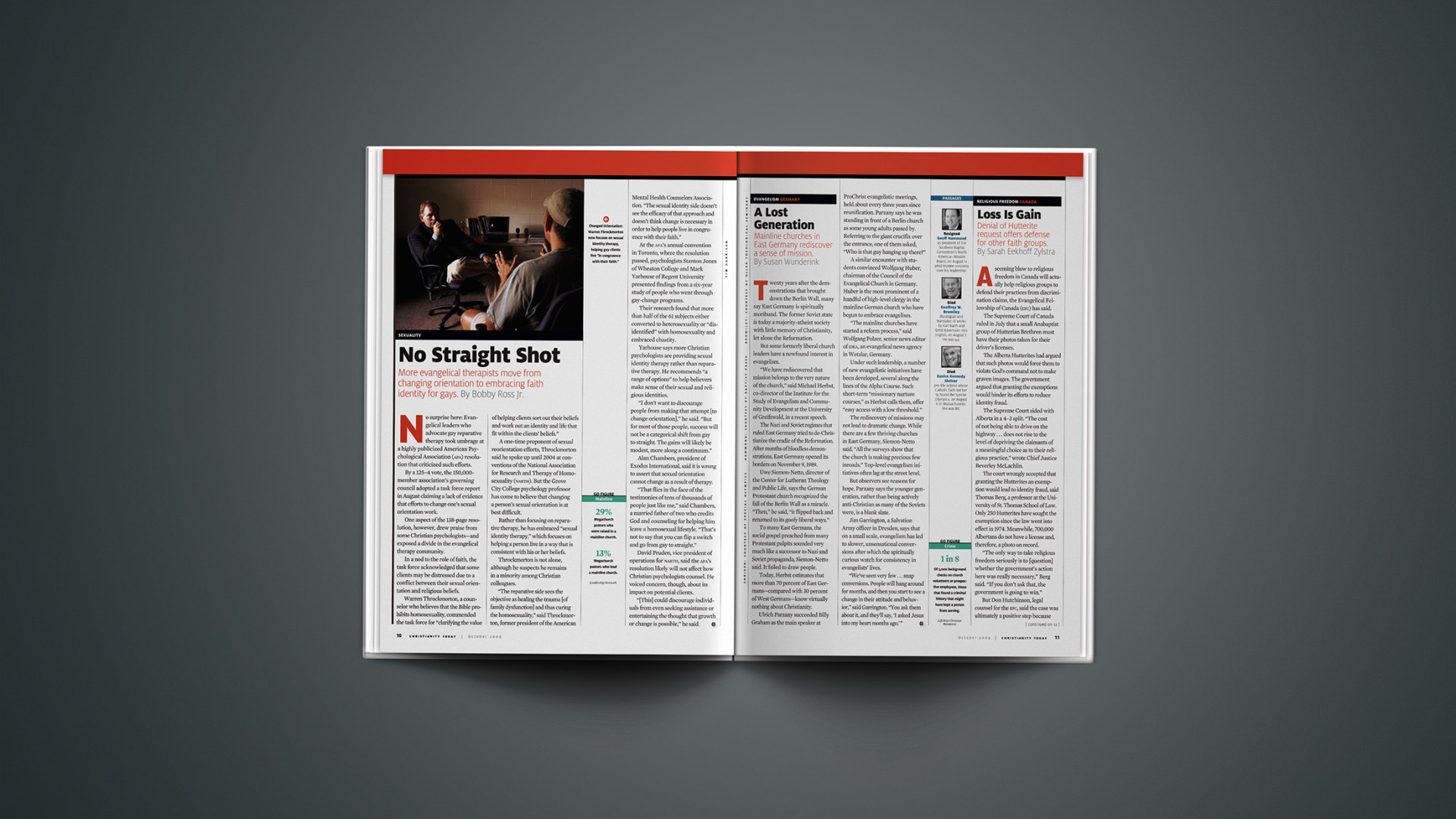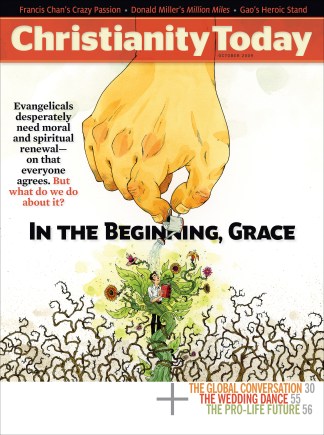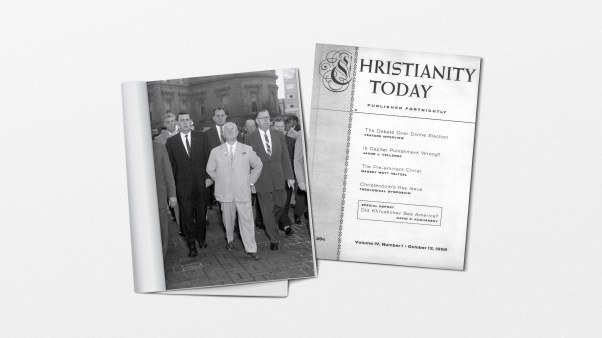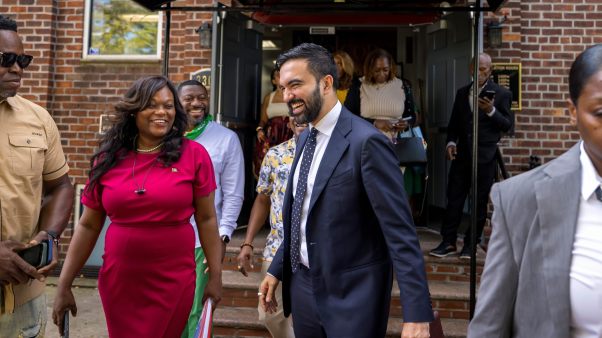Twenty years after the demonstrations that brought down the Berlin Wall, many say East Germany is spiritually moribund. The former Soviet state is today a majority-atheist society with little memory of Christianity, let alone the Reformation.
But some formerly liberal church leaders have a newfound interest in evangelism.
“We have rediscovered that mission belongs to the very nature of the church,” said Michael Herbst, co-director of the Institute for the Study of Evangelism and Community Development at the University of Greifswald, in a recent speech.
The Nazi and Soviet regimes that ruled East Germany tried to de-Christianize the cradle of the Reformation. After months of bloodless demonstrations, East Germany opened its borders on November 9, 1989.
Uwe Siemon-Netto, director of the Center for Lutheran Theology and Public Life, says the German Protestant church recognized the fall of the Berlin Wall as a miracle. “Then,” he said, “it flipped back and returned to its goofy liberal ways.”
To many East Germans, the social gospel preached from many Protestant pulpits sounded very much like a successor to Nazi and Soviet propaganda, Siemon-Netto said. It failed to draw people.
Today, Herbst estimates that more than 70 percent of East Germans—compared with 30 percent of West Germans—know virtually nothing about Christianity.
Ulrich Parzany succeeded Billy Graham as the main speaker at ProChrist evangelistic meetings, held about every three years since reunification. Parzany says he was standing in front of a Berlin church as some young adults passed by. Referring to the giant crucifix over the entrance, one of them asked, “Who is that guy hanging up there?”
A similar encounter with students convinced Wolfgang Huber, chairman of the Council of the Evangelical Church in Germany. Huber is the most prominent of a handful of high-level clergy in the mainline German church who have begun to embrace evangelism.
“The mainline churches have started a reform process,” said Wolfgang Polzer, senior news editor of IDEA, an evangelical news agency in Wetzlar, Germany.
Under such leadership, a number of new evangelistic initiatives have been developed, several along the lines of the Alpha Course. Such short-term “missionary nurture courses,” as Herbst calls them, offer “easy access with a low threshold.”
The rediscovery of missions may not lead to dramatic change. While there are a few thriving churches in East Germany, Siemon-Netto said, “All the surveys show that the church is making precious few inroads.” Top-level evangelism initiatives often lag at the street level.
But observers see reasons for hope. Parzany says the younger generation, rather than being actively anti-Christian as many of the Soviets were, is a blank slate.
Jim Garrington, a Salvation Army officer in Dresden, says that on a small scale, evangelism has led to slower, unsensational conversions after which the spiritually curious watch for consistency in evangelists’ lives.
“We’ve seen very few … snap conversions. People will hang around for months, and then you start to see a change in their attitude and behavior,” said Garrington. “You ask them about it, and they’ll say, ‘I asked Jesus into my heart months ago.'”
Copyright © 2009 Christianity Today. Click for reprint information.
Related Elsewhere:
Christianity Today also posted “Germany’s Christian Democrats” about the recent election in Germany.
Previous articles on Germany include:
Church in State | In post-Communist Germany, Christian political involvement is surging. (March 10, 2008)
East German Church Lost ‘Distinctive Voice’ After Reunification | “Forty years after the building of the Berlin Wall, cleric claims some churches are worse off.” (August 1, 2001)









